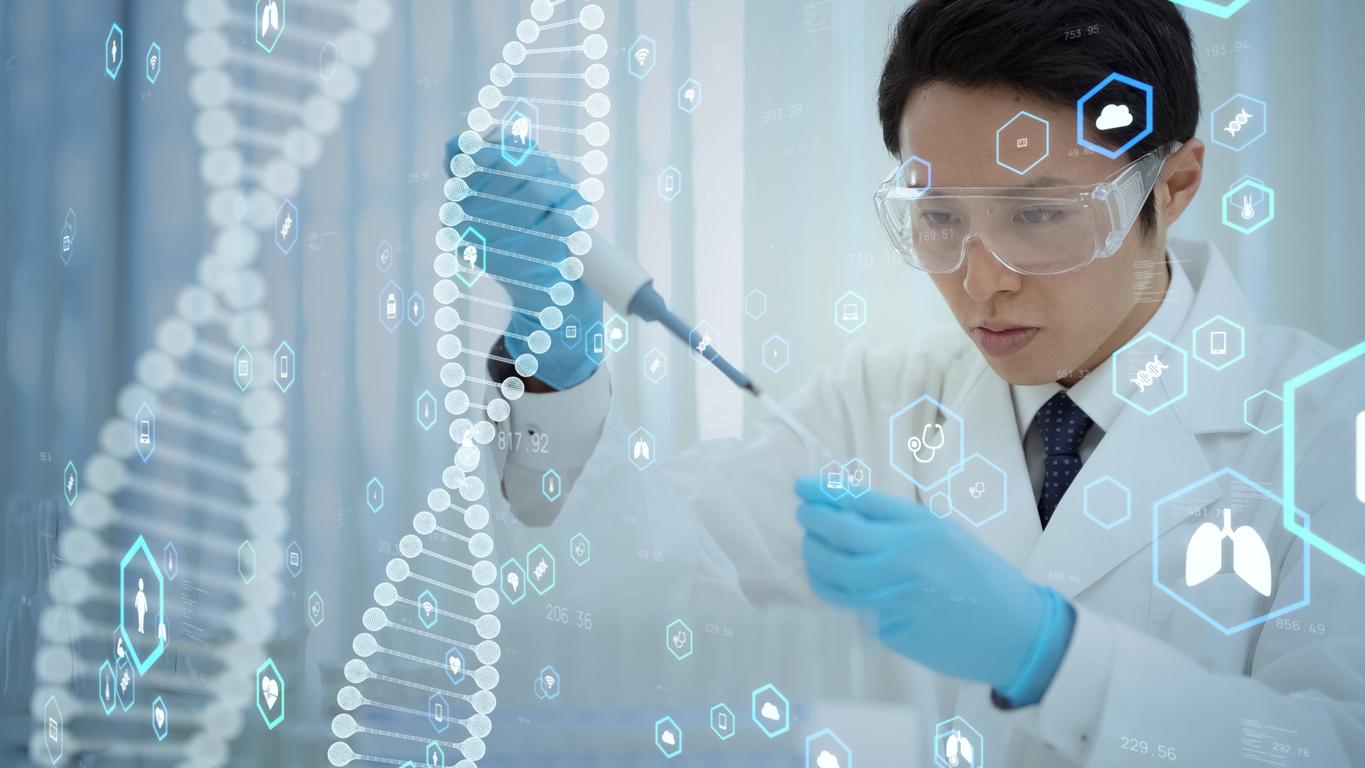Among the different forms of autism, or autism spectrum disorder (ASD), some are closely linked to specific genetic disorders. With the rapid advances in research and gene therapies, the question arises: is it possible that one day we could cure autism linked to genetic abnormalities?

- Genetic mutations cause some forms of autism.
- Gene therapy trials have shown that they can improve cognitive function.
- Advances in gene therapy offer hope of a cure for forms of autism linked to gene mutations.
Autism is a complex neurodevelopmental disorder with multiple causes, some of which are genetic. Abnormalities in several genes have been associated with autism, including mutations in the MECP2 gene, which causes Rett syndrome, and mutations in the FMR1 gene, which causes Fragile X syndrome. These genetic disorders can lead to intellectual disabilities, behavioral problems, and other autism-related characteristics.
Genetic research has identified many genes associated with autism. Thanks to next-generation DNA sequencing techniques, scientists can now explore genomes in greater detail. These advances have paved the way for targeted therapeutic approaches, such as gene therapy.
Gene therapies: hope for the future?
Gene therapy involves modifying or replacing defective genes to treat or prevent diseases. In the context of autism linked to genetic disorders, this could mean correcting the genetic mutations that underlie the disorder. Current gene therapy techniques include using viral vectors to introduce corrective genes into the patient’s cells.
Clinical trials with promising results
Significant progress has been made in applying gene therapy to specific disorders. For example, early clinical trials have shown promising results in the treatment of fragile X syndrome and Rett syndrome. These studies have demonstrated that gene therapy has the potential to reverse some neurological symptoms and improve cognitive function.
Challenges and limitations of gene therapies in autism
Although gene therapy offers enormous potential, it is important to note that autism is a spectrum with a wide variety of manifestations and causes. The genetic mutations that have been identified represent only a portion of autism cases. Furthermore, even among those with an identified genetic basis, the effects of these mutations can vary widely.
Gene therapy also raises ethical and safety issues. Editing the human genome carries risks, and it is crucial to ensure that interventions are safe and effective before they are widely implemented. Clinical trials must be conducted rigorously to assess long-term effects and potential side effects.
Towards personalized treatments
Research into autism linked to genetic disorders is evolving towards a personalized medicine approach. This approach aims to tailor treatments to the specific genetic characteristics of each individual. In the future, it is possible that genetic interventions will become an integral part of the treatment of forms of autism linked to identified genetic mutations.
Innovations in biotechnology and genomics continue to advance rapidly. Gene editing techniques, such as CRISPR-Cas9, offer ways to modify DNA in precise and targeted ways. These advances could open new avenues to treat or even cure some aspects of autism linked to genetic disorders.
Although the prospect of curing autism due to genetic disorders is still a work in progress, advances in gene therapy offer tangible hope. Recent scientific advances show that in the not-too-distant future, it may be possible to correct some of the genetic mutations that cause autism.

















